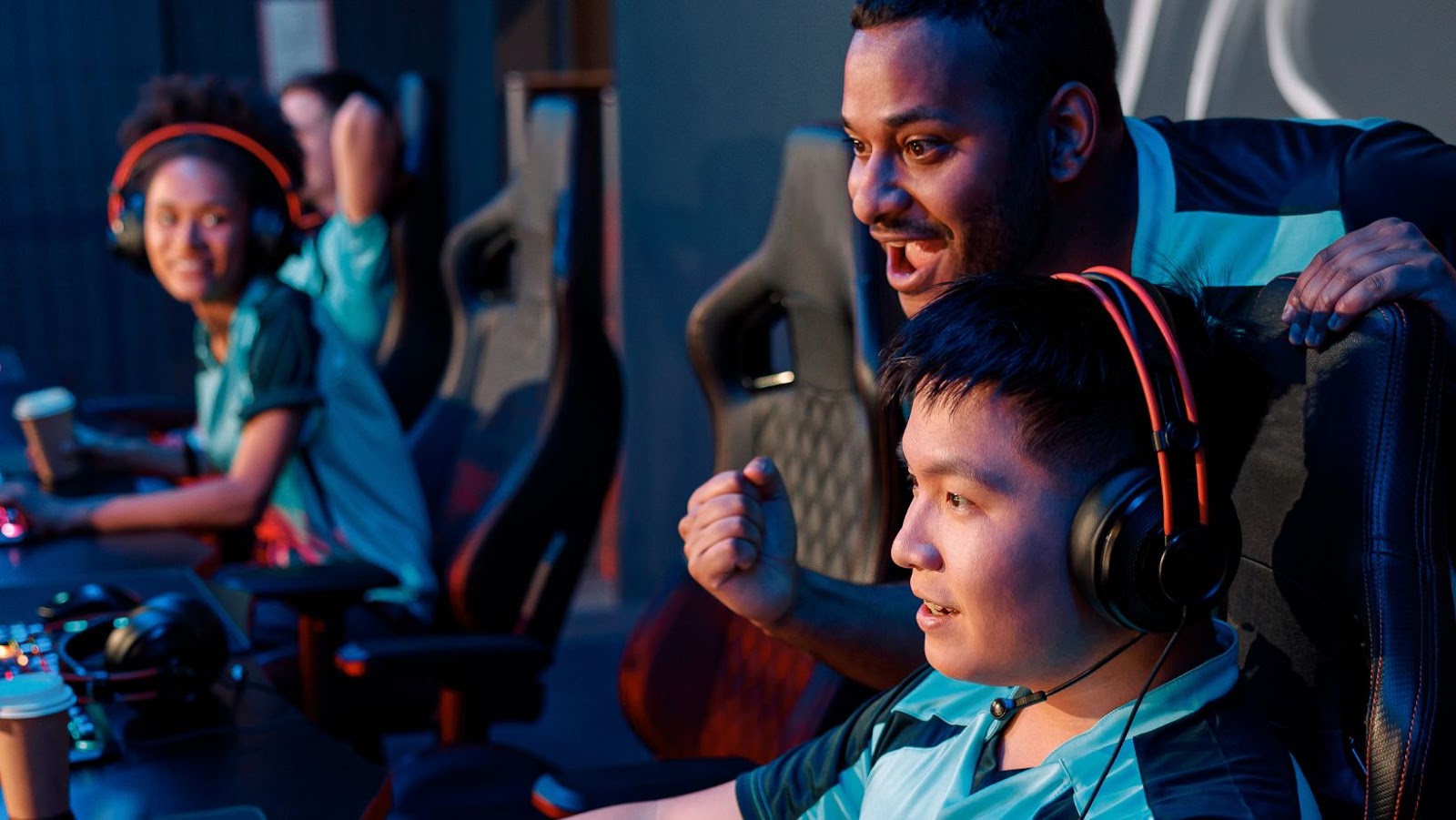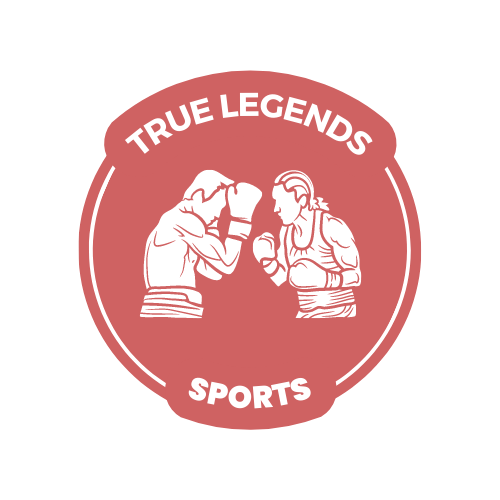The rise in the presence and popularity of esports in the world today has led to discussion of its potential inclusion in the Olympics. While esports are not yet officially part of the Olympic Games, its steady ascension over recent years suggests that this could soon change. This paper aims to explore how esports could become part of the Olympics and what implications such a move would have.
The paper begins by examining what is meant by ‘esports’, before going on to discuss why its inclusion in the Olympics should be considered and looking at which organisations are already driving this agenda forward. It then considers whether including esports would affect other Olympic sports negatively before discussing how it could fit into existing Olympic structures. The paper finishes by discussing what challenges must still be overcome for esports to be fully included in the Olympic Games.
Is Esports Coming to The Olympics
Esports have been growing in popularity since the early 1990s, when they first started gaining traction as a viable top-tier competitive event. Since then, the phenomenon has continued to expand and become more organized, with professional players, teams, and tournaments taking up more space in the gaming world than ever before.
Now, the question on everyone’s mind is this: will esports be included in the Olympics? Let’s take a look at the history of esports and what that might mean for the future.
Origins of Esports
Esports, or competitive video gaming, has a long and storied history stretching back more than two decades. Although the idea of esports can trace its roots back as far 1973 with the start of “Spacewar,” the modern-day incarnation of competitive gaming began in South Korea beginning with the launch of StarCraft: Brood War in 1998.
South Korea proved to be a major culture hub for esports over the coming years, leading to other countries investing heavily in gaming infrastructure and community development. Soon, several tournaments were cropping up internationally, offering sizeable cash prizes to individual competitors and teams that could secure successful placements. These tournaments marked major turning points for the industry and helped set the stage for what we now recognize as major players in esports today.
In 2004, Full Tilt Poker sponsored an event at Dreamhack that included promotional giveaways and tournament prize money for players involved with Counterstrike 1.6 and Warcraft III tournaments. This event quickly transformed from being amateur competitions arranged by players from within a specific scene into full-blown professional events spectated by millions across multiple continents.
The international profile surrounding esports has grown exponentially since then with entities like Blizzard Entertainment hosting global tournaments like Overrwatch World Cup, League of Legends’ yearly World Championships (which have reached more than 100 million online viewers), Dota 2’s The International (which offers an overall prize pool topping almost $25 million) and Intel’s Extreme Masters championship hosted annually across multiple cities around the world. As such, The Olympic Council is currently considering bringing Esports into their family of games at future Olympic Games competitions.
Growth and Popularity of Esports
Esports has seen tremendous growth in the last decade due to a combination of factors, from technological advances to celebrity endorsement. During this time, esports has gone from being an obscure hobby to becoming a popular professional sport with millions of viewers and players. The increased interest and investment in esports are directly responsible for its inclusion on the Olympic program: in 2018 the International Olympic Committee (IOC) began its exploration of competitive video gaming as a potential Olympic sport.

Today, esports is played at all levels, from casual tournaments among friends to professional leagues like the League of Legends World Championship and the Evolution Championship Series. These tournaments bring together communities of gamers around the world who compete against one another for both monetary prizes and recognition within their favorite game or genre. The games themselves have become so popular that many have dedicated fan bases who follow the progress of their favorite teams or players just as they would for any mainstream sports team.
As esports continues to grow, it has also gained legitimacy on a global scale with countries such as Japan recognizing it as an official sport, along with some professional organizations such as Major League Baseball that have begun showing support by partnering with various organizations. Additionally, more and more universities are also offering varsity esports programs where students can compete at intercollegiate level and receive scholarship opportunities for doing so – creating new opportunities for young players all over the world.
The International Olympic Committee
The International Olympic Committee (IOC) will make the final decision on whether esports can become an Olympic-sanctioned event. However, many esports organizations and professional players have already expressed their desire to have it included in the Olympics.
In this article, we’ll take a closer look at the current status of esports in the Olympics and what needs to happen for it to become an official Olympic event.
IOC’s Stance on Esports
The International Olympic Committee (IOC) has been monitoring the development of esports and exploring its potential inclusion as a future Olympic event. In October 2017, the IOC held an Esports Forum in Lausanne, Switzerland to discuss how best to include esports into the Olympic program.
The forum examined how including esports could contribute to the Olympics movement and strengthen youth engagement, recognize new forms of digital expression, inspire new generations of athletes and teams and promote gender equality. These topics were discussed with representatives from national Olympic Committees (NOCs), international federations, players, international sports organizations, broadcast partners, organized esports stakeholders and game publishers.
Despite being open to the dialogue around adding potential non-traditional sports such as esports at the Olympics, IOC President Thomas Bach expressed concerns about the violent nature of some videogames. He also expressed his opinion that any non-traditional sport must reflect “Olympic values” in order to be admitted into the games. The proposed addition of additional sports will also have financial implications which will need to be considered by stakeholders like broadcasters when determining their support for such initiatives.
Potential Benefits of Including Esports in The Olympics
Esports have been gaining global recognition, both as participants in the competitive gaming space and as spectators. Considering their steadily rising popularity, it’s no surprise that many are discussing the potential benefits of including esports in the Olympic Games. For example, esports have already earned early recognition by the Asian Olympic Council and could be included in some form in upcoming Olympic Games.
Adding esports to the Olympics could open up new opportunities for global participation across all ages and all levels of ability. Esports promotes physical health, mental acuity, ambition, creativity and collaboration – all of which are qualities that strive to achieve “development of a healthy lifestyle” championed by the International Olympic Committee (IOC). Having an electronic sport at an international event provides a platform for athlete cooperation across nations. It bridges gaps between countries when language barriers would otherwise exist due to lack of common cultural understanding—leading to meaningful international dialogues about shared sportsmanship values like discipline and respect.
Moreover, growth in viewership demands can be met through a digital ecosystem that can monitor user engagement data from different countries—allowing IOC to analyze viable opportunities through real-time user feedback regardless of geographic location or time zone — giving further power back to athletes around world who will have their voices heard or receive compensation for their labor that previously didn’t exist before with traditional sports governing bodies. By connecting athletes internationally with advanced technological networks such as cloud computing platforms or 5G networks—next-level content aggregation around an international sporting event can be achieved pushing this innovation into areas yet untapped (like Mixed Reality/VR experiences). Furthermore, they provide access to exclusive resources like analytics platforms that measure performance data against sportsmanship metrics – giving coaches firsthand insight into how individual players are broadening the playing field globally on their terms —allowing them even more ground to explore innovative strategies from across nations without borders.
Challenges to Including Esports in the Olympics
With the rise of esports in recent years, some have suggested that esports should be included in the Olympics. While the idea of esports being recognized on the same level as other traditional sports is certainly exciting for esports fans, there are a number of challenges that have yet to be addressed before esports can be included in the Olympic Games.
In this article, we will consider some of the challenges that must be overcome in order for esports to be included in the Olympics.
Concerns Over Violence in Esports
Many Olympic sports have clear associations with violence and physicality, so the idea of including a video game in which contestants use weapons or rely on factors of aggression has naturally raised concerns and questions. The International Olympic Committee (IOC) are hesitant to include events that display levels of violence, particularly when athletes appear physically unaffected by it and amid concerns about the prevalence of games based on military character personas and warfare themes such as those in most popularly featured battle royale games such as Fornite.

The IOC has expressed their concern for the effects that including these types of esports could have on their existing culture – an environment in which sport is seen as a positive formative influence. There is also considerable debate around whether or not awarding medals is appropriate for electronic sporting events, where there could potentially be wider implications than just lining up to receive a medal – such as broadcasting to global audiences. These elements, alongside determining age criteria, if any past experiences can be used as justification, and managerial oversight all need to be considered if esports are ever looked at seriously enough to be added into the Olympics’ program.
Lack of Clarity on Which Games to Include
The entry of esports into the Olympic Games has been proposed by some as a way to attract a more diverse audience and to draw attention to technological innovations. However, a major challenge remains in determining which games should be included in the Olympics.
Various organizations such as the GTA Online Championships and the Intel World Open use different rules for qualification and engagement systems, which could lead to discrepancies between competitive platforms. Issues such as player behaviour, coaching support, game mechanics, platform security and competitive planning must also be addressed.
Furthermore, there is a lack of clarity when it comes to identifying which games should be included in the Olympics. The matter becomes even more complex when attempting to understand how an Olympic governing body could control and regulate potentially hundreds of different games across multiple platforms. To combat this issue, countries like Japan have proposed establishing committees which would determine which titles would best suit their Olympic needs.
Players may also suffer from different levels of access across various countries due to differences in internet accessibility and infrastructure. This inequality can further complicate the selection process for esports at the Olympic level, with participants needing high connected speeds for online competition formats in order for them to succeed at the global stage.
Difficulty in Measuring Performance
One of the main difficulties in including esports in the Olympics is the difficulty in accurately measuring a player’s performance. In traditional sports, it is easy to record metrics such as speed and strength to compare players; however, this type of information is more difficult to measure for gamers.
Because games can vary greatly depending on conditions, players can often have different levels of performance even on the same game platform. Also, one player may excel at a certain game while another player may do better on a different type of game. This makes it difficult to accurately measure who is performing better overall and affects how awards would be given out.

Furthermore, with traditional sports there are referee-type figures who objectively decide who wins or loses based on predetermined factors; this officiation system does not exist with esports, where performance judgments can be highly subjective — especially when factoring in team play or strategic elements. Thus, there must be careful consideration when setting eSports metrics that would then be used to make determinations about individual performance and competitive awards within the Olympic framework.
Conclusion
Esports have become incredibly popular in recent years, and the topic of esports inclusion in the Olympics has been discussed widely. It is clear that esports as a legitimate sport meets all the criteria for inclusion in the Olympic games and could offer many potential benefits to the Olympic movement.
This article will summarize the various arguments and considerations before making a conclusion on whether esports should be eligible to compete in the Olympics.



No Comment! Be the first one.